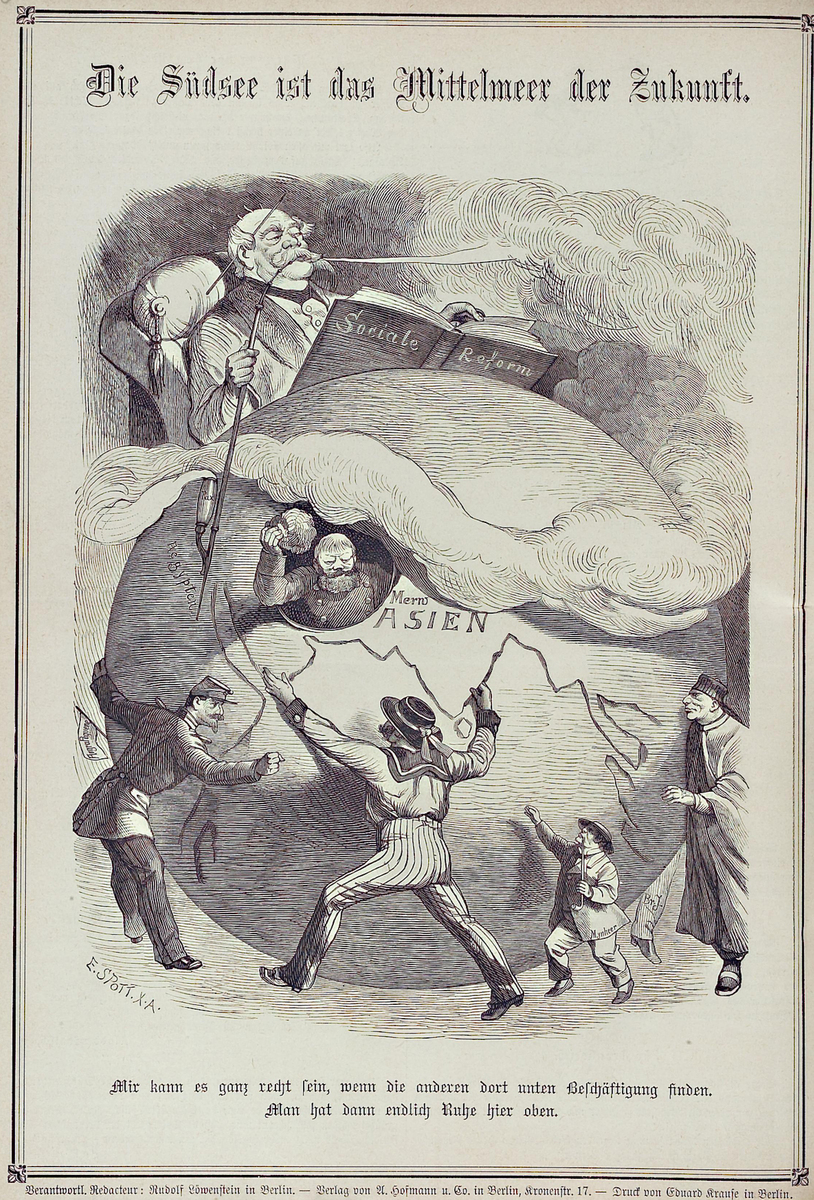Abstract
The reluctance with which Bismarck participated in Germany’s colonial
program in 1884 is belied by the self-satisfied pose he adopts in this
satirical cartoon from
Kladderadatsch. South of the equator,
hidden beneath the waft of smoke emanating from Bismarck’s long pipe,
the other European powers—not Germany—are busily acquiring new colonies.
A Frenchman has spread his arms wide, trying to embrace Africa from east
to west. A British sailor has found handholds in India and the Middle
East, a tiny Dutchman grasps for the East Indies, a Japanese man has his
eye on east Asia, a Russian pokes his head out at Merw in Persia, which
had been acquired in 1884, and even an American is “shaking a leg” as
the race for colonies heats up. A tiny flag planted in Southwest Africa
marks Angra Pequena, which had become a German protectorate on April 24,
1884, when the Bremen merchant Adolf Lüderitz established a trading
outpost there. Kladderadatsch’s
implied criticism is that Bismarck was so engrossed in his program of
“social reform” in the 1880s that he failed to recognize the importance
of colonial possessions.
